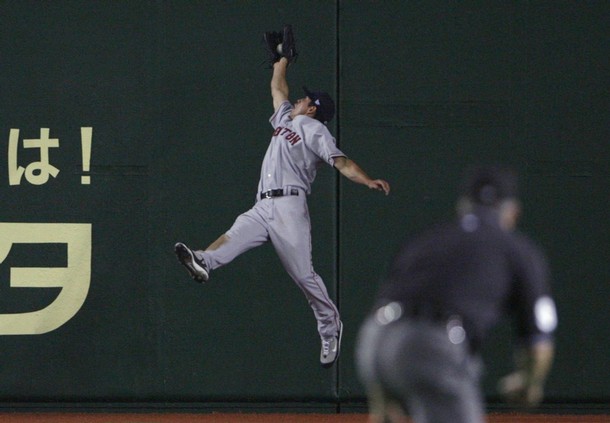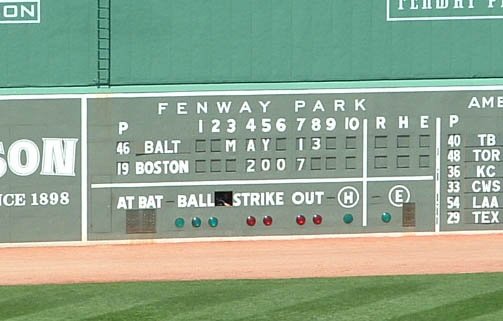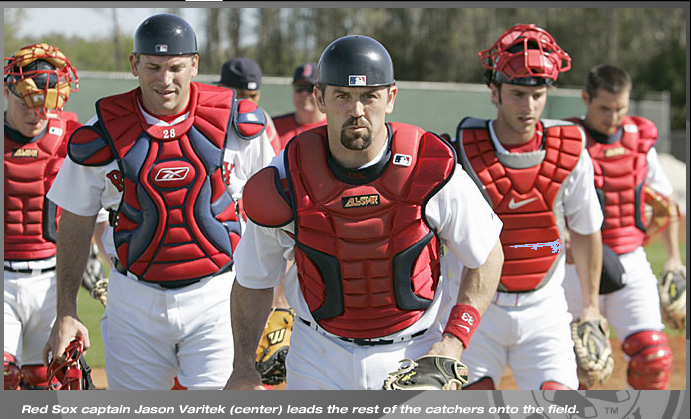Varitekian Sonnets
 Recently, a collection of sonnets in the Shakespearean form were submitted to this site for review. They were not solicited, and despite our multiple entreaties for him to stop, the submitter sent multiple versions multiple times, both electronically and via post, and often with poorly Photoshopped images suggesting poor moral character. The submitter left it unclear as to whether he wrote the sonnets himself, was submitting them on someone’s behalf, or had taken these sonnets without the author’s permission.
Recently, a collection of sonnets in the Shakespearean form were submitted to this site for review. They were not solicited, and despite our multiple entreaties for him to stop, the submitter sent multiple versions multiple times, both electronically and via post, and often with poorly Photoshopped images suggesting poor moral character. The submitter left it unclear as to whether he wrote the sonnets himself, was submitting them on someone’s behalf, or had taken these sonnets without the author’s permission.
We here at Nerds On Sports have decided to make the most of these submissions and taken a critical eye toward them. This is the first of the whole collection, as well as the start of an introductory subset which the submitter referred to as the “recreation sonnets.”
Sonnet 1
No longer will the captain make his trek,
A walk of solace from home plate to mound:
To meditate on throws did Varitek –
Whence pitcher’s victims whiffed or cursed aloud.
Four times opponents did score zeros twice1,
And Captain’s ‘rouse with applied glove to face2
The shame of A-Rod! And new rings! – Quite nice,
Yet how I’ll miss your crouch behind home base.
O Captain, hitting switch is but a tease.
Must you tell me how better it will get?3
There’s need to learn to catch, if you would please,
A happy player if we ever met.
No4 single, only a grand slam will do.
A highly scoring game with love so true.
1 ie A no-hitter
2 An obvious reference to the July 24, 2004 game
3 http://youtu.be/TGcY_ip3w7g
4 A few versions of this sonnet had this as “Now” instead of “No,” possibly suggesting that part of it was written following Varitek’s divorce. However, the majority and most recent sonnet had it as is.
The sonnet follows the traditional form, with the first two quatrains establishing Jason Varitek as the hero, the “Captain,” the leader of the Red Sox who ultimately achieved their long-sought goal of winning the World Series. But by the end of the second quatrain, the sonnet moves away from the establishment of Varitek’s pietas and toward the author’s view of him.
The thematic turn, or volta, comes into full force at the beginning of the third quatrain, when the author entreats the hero for a closer relationship. While spelled out clearly in this quatrain and the couplet, this is hinted at throughout the poem, especially with the use of “rouse” in line six. Ostensibly, this is referring to Varitek rallying his teammates to overcome the Yankees and to evenutally lead the former into what would be an epic post-season. But this could also refer to getting the crowd excited for the game. Or for one fan in particular and in a very specific fashion, spelled out in the final couplet. Indeed, the remainder of the sonnets get exceedingly more graphic and are unpublishable for a family-oriented blog such as this.
 With the Red Sox having their opening day over in Japan, I dutifully set my alarm clock for 5:50 AM so I could kickoff baseball season in style, i.e. in pajamas in the dark with the sound turned real low. Co-editor Willis had suggested trying to talk via interweb as the game was going on, but I’m not fancy enough to have a laptop. I did, however, keep notes throughout the whole affair, and am presenting them to you now.
With the Red Sox having their opening day over in Japan, I dutifully set my alarm clock for 5:50 AM so I could kickoff baseball season in style, i.e. in pajamas in the dark with the sound turned real low. Co-editor Willis had suggested trying to talk via interweb as the game was going on, but I’m not fancy enough to have a laptop. I did, however, keep notes throughout the whole affair, and am presenting them to you now.
